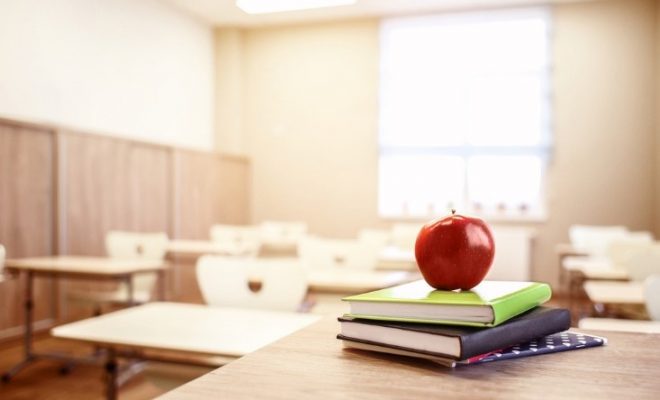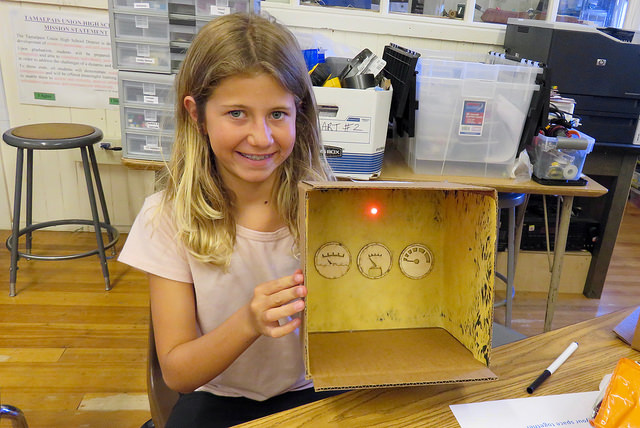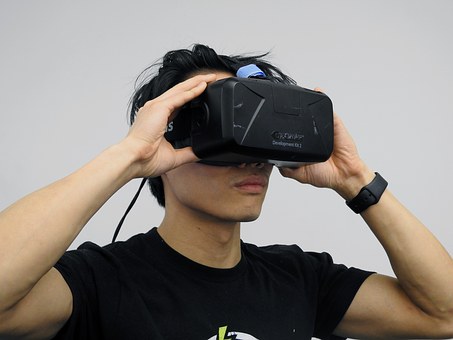Digital Early Learning Program in Napa County sees strong results
Submitted by Dr. Barbara Nemko, Napa County Superintendent of Schools
“The children love [the program] and in fact they ask daily, ‘Is it my turn on the iPad today?’ Also … we as teachers are learning too.” – Marianne Stegman, Site Supervisor, St. Helena Child Development Center
Tackling Achievement Gap Before Kindergarten
Research has shown that children from low-income families come to school typically lagging two years behind their more privileged peers on standardized language tests. This achievement gap, which has been called a 30 million word gap (Hart and Risley, 2004), affects their ability to learn to read, and persists throughout their school careers. Identified as equally important in learning to read by researchers is access to books in the home. Again, children from low income families frequently have few or no books at home, and enter kindergarten not knowing that books in English are read from left to right, or being able to identify the letters of the alphabet.
To prepare these at-risk students for kindergarten, The Napa County Office of Education (NCOE) began collaborating with local non-profit NapaLearns to launch the first countywide offering in the nation of a digital early-literacy program. The program primarily uses the Footsteps2Brilliance “app” on tablets and other devices, and is provided at no cost to preschools and to parents of preschool age children in the county, including those not enrolled in a preschool program. The digital early literacy tools include libraries of books that are engaging, animated, and capable of reading themselves to children in either English or Spanish. These books teach the 1,000 most important Dolch words, as well as phonics and comprehension skills, through stories and games that motivate children to want to read the stories again and again. Once downloaded onto a device these books can be opened with or without wifi. For those families who cannot afford a device, NCOE has partnered with NapaLearns to offer a rent-to-buy HD Kindle for children.
The Results are Immediate and Impressive
NCOE’s Digital Early Learning program was piloted in 2011 as a 4-week summer boot camp for four-year old English language learners. Impressive results in language use led us to administer the Peabody Picture Vocabulary Test, pre- and post, to kindergarten students the following year, producing statistically significant results in both expressive and receptive language. The countywide launch for all preschool students came in February 2014, and Napa County preschoolers were challenged by me to read one million words by June 30. Instead, they topped five million, and have continued their astonishing rate of growth. A kindergarten teacher recently administered the DIBELS test and discovered that the children who scored the highest were those who spent the most time reading their digital books at home. There are currently over 1,200 children enrolled who have been exposed to over 12 million words, and have correctly answered the comprehension questions on their first try 67% of the time. These children are using the program at home 55% of the time.
The Family that Reads Together…
The staff working on our Digital Early Learning initiative have conducted extensive bilingual and multicultural community outreach, and opportunities for parent training, to ensure the widespread participation in this free program. In one year we have provided more than 30 parent workshops, as well as workshops for preschool and kindergarten teachers. Outside of Napa, we were invited to the White House Summit on Early Literacy to share about the positive impact of digital early learning in our county. Moving forward, we are excited to begin an ongoing five-year longitudinal study, to determine if children who use our digital early literacy in preschool are more proficient readers at the end of third grade than children who do not.
For more information on this program, contact Seana Wagner, Public Information Officer at [email protected] or 707-265-2351.
Read all of our posts about EdTech and Innovation by clicking here.






